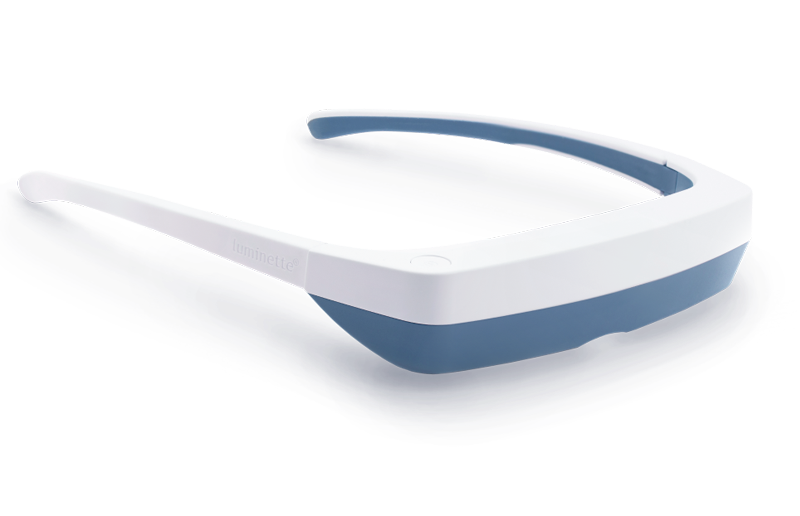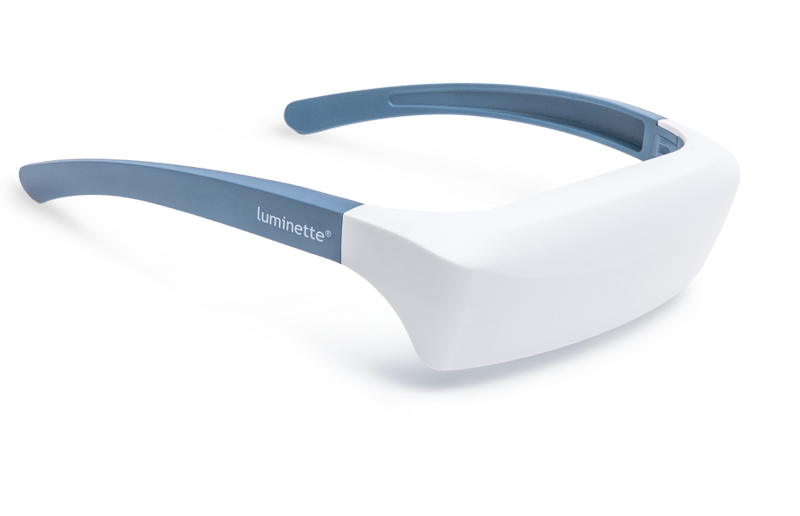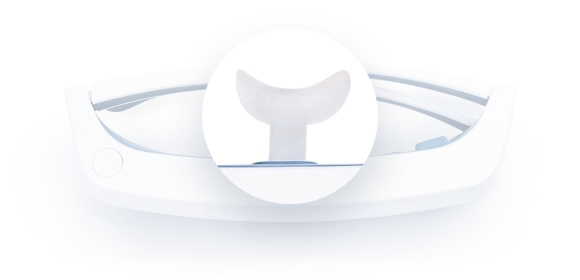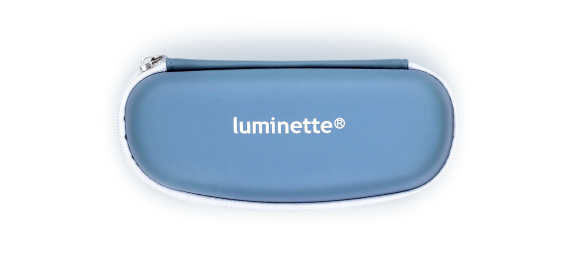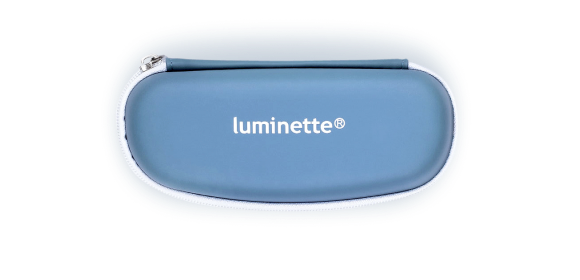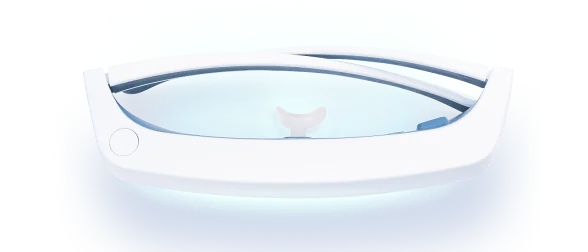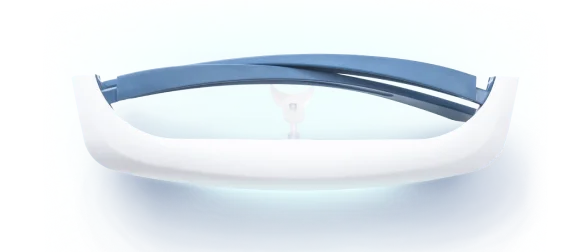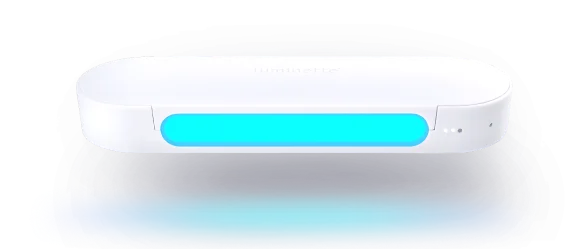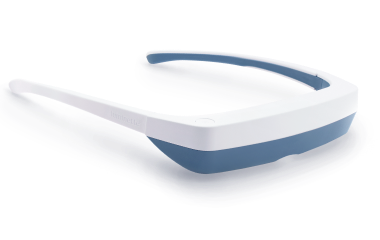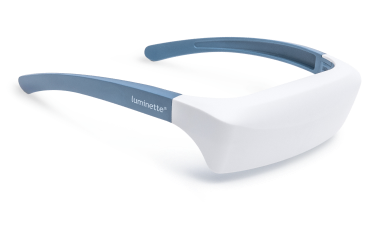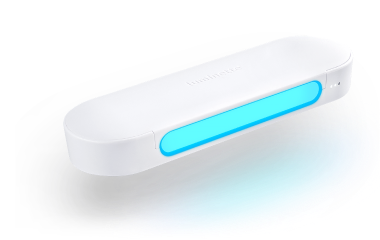Солнечный свет давно ассоциируется с положительными эмоциями и психическим благополучием. Помимо питания нашего организма необходимыми витаминами, повышения настроения, снижения кровяного давления и даже регулирования циклов сна и бодрствования, многие люди наслаждаются ощущением солнечного света, и всё больше доказательств подтверждает его многочисленные полезные для здоровья свойства.
Но что происходит, когда мы не получаем достаточно солнечного света, например, в сезоны с ограниченным количеством солнечных дней? Ещё хуже, что могут делать люди, живущие в регионах с большим количеством тёмных дней, чем солнечных?
Недостаток солнечного света может привести к нескольким нежелательным психическим и физическим состояниям, включая низкий уровень энергии, чувство глубокой печали и дефицит витамина D.
Чтобы предотвратить такие нежелательные состояния, воздействие специального искусственного света, имитирующего Солнце, в течение определённого времени может улучшить ваше физическое и психическое состояние. Такая сессия светотерапии также известна как световая терапия.
В этом посте мы рассмотрим ключевые преимущества солнечного света, как светотерапия имитирует эти эффекты и как вы можете использовать её, чтобы чувствовать себя лучше.
Обзор солнечного света и его важности
Солнце — наш самый важный источник энергии, обеспечивающий всё необходимое для поддержания жизни на Земле. От стимулирования роста растений до согревания нас — солнечный свет жизненно важен для жизни.
Хотя широкое осознание того, что чрезмерное пребывание на солнце может вызвать рак кожи, заставляет людей осторожно относиться к времени, проведённому на солнце, получение вашей ежедневной дозы солнца так же важно, как и наслаждение его многочисленными полезными для здоровья эффектами.
Каковы физические преимущества солнечного света?
Способствует выработке витамина D
Когда вы подвергаетесь воздействию солнечного света, ваш организм запускает производство и усвоение витамина D через кожу. Витамин D — жизненно важный нутриент, который помогает поддерживать здоровье костей и снижает риск сердечных заболеваний, набора веса и различных видов рака кожи.
Укрепляет иммунную систему
Хотя солнечный свет запускает синтез витамина D, исследование показало, что солнечный свет, через механизм, отличный от производства витамина D, заряжает Т-клетки энергией, которые играют центральную роль в иммунитете человека.
Витамин D также критически важен для вашей иммунной системы. В отчёте говорится, что этот новый механизм может объяснить некоторые из ролей, приписываемых витамину D в иммунитете. Исследование конкретно обнаружило, что низкий уровень синего света в солнечных лучах заставляет Т-клетки двигаться быстрее.
Улучшает здоровье костей
Как мы уже упоминали, Солнце запускает выработку витамина D в нашем организме, который необходим для усвоения кальция и фосфора. Эти минералы тесно взаимодействуют, чтобы поддерживать наши кости и зубы крепкими.

Каковы преимущества солнечного света для психического здоровья?
Помогает в регулировании настроения
Научные исследования подтверждают идею, что солнечный свет напрямую влияет на наше настроение. Более свежие исследования показали положительную связь между воздействием солнечного света и психическим здоровьем.
Одна из причин в том, что воздействие солнечного света увеличивает производство серотонина в организме. Серотонин, естественный улучшитель настроения, помогает регулировать настроение и уровень энергии, может предотвратить плохое настроение и обеспечивает чувство эйфории. Считается, что низкий уровень серотонина в мозге способствует чувству глубокой печали.
Если вы подозреваете, что у вас низкий уровень серотонина, получение большего количества солнечного света или воздействие яркого света, например Luminette Portable Light Therapy Lamp, который имитирует ультрафиолетовые лучи Солнца, может помочь повысить уровень серотонина и улучшить настроение естественным образом без необходимости прямого солнечного света.
Снижает стресс и тревогу
Одним из основных преимуществ солнечного света утром является его роль в регулировании нашего внутреннего биологического часов и повышении состояния расслабленности.
Кроме того, воздействие солнечного света может стимулировать выработку эндорфинов — гормонов, направленных на снятие стресса и боли, одновременно снижая уровень гормонов стресса, таких как кортизол.
Если вы чувствуете стресс и хотите что-то, что поможет ограничить реакцию вашего организма на стресс, попробуйте прогулки или упражнения на улице для увеличения выработки гормонов.
Однако в сезоны с ограниченным солнечным светом, такие как зима, включение светотерапии в ваш ежедневный распорядок может помочь снизить стресс и повысить чувство спокойствия, чтобы вы могли устойчиво справляться с повседневной жизнью.
Связанные материалы: Что такое тревога перед сном и почему она возникает? Понимание и управление симптомами.
Борется с зимней хандрой
Снижение воздействия солнечного света может понизить уровень серотонина, что делает вас склонным к зимней грусти — форме продолжительной печали, вызванной сменой сезонов.
С другой стороны, увеличенное воздействие естественного дневного света может помочь облегчить симптомы зимней хандры.
Из-за связи между снижением воздействия солнца и зимней хандрой, светотерапия является одним из основных методов их лечения.
Устройства, такие как очки для светотерапии, имитируют естественный солнечный свет, стимулируя мозг вырабатывать серотонин и снижая избыток мелатонина.
Они предоставляют простой и эффективный способ борьбы с зимней хандрой, доставляя искусственный солнечный свет организму, повышая настроение и уровень энергии в темные месяцы.
Каковы потенциальные риски дефицита солнечного света?
Некоторые из наиболее распространенных потенциальных рисков недостаточного солнечного света включают дефицит витамина D, ослабленную иммунную систему, зимнюю хандру, пониженное настроение и плохое качество сна.
Без достаточного количества солнечного света организму трудно эффективно регулировать внутренние процессы, что приводит к чувству усталости, раздражительности и даже долгосрочным проблемам со здоровьем.
Как светотерапия имитирует солнечный свет
Воздействие солнечного света не ограничивается только Солнцем. Это хорошая новость, особенно для темных, холодных сезонов или регионов с более темными днями, чем солнечными, потому что это значит, что вы все равно можете получать пользу от светового воздействия, будь то дома или на работе, используя устройство, имитирующее солнечный свет.
Светотерапия — это неинвазивная техника, использующая яркий свет для имитации естественного солнечного света. Она может помочь при различных проблемах, связанных с недостатком солнечного света, включая низкий уровень энергии, изменения настроения, зимнюю хандру, стресс, тревогу и недостаток концентрации.
Что такое светотерапия?
Светотерапия — это вид терапии, при котором вы подвергаетесь воздействию специального света, имитирующего солнечный. Воздействие света происходит на определённой длине волны и в течение предписанного времени для лечения таких состояний, как зимняя хандра, чувство глубокой печали и плохое качество сна.
Вы можете получить пользу от утреннего солнечного света, не проводя часы на улице, используя специальные устройства, такие как Luminette 3 Light Therapy Glasses и Drive Light Therapy Lamp.
В общем, чтобы провести сеанс светотерапии:
Подвергайтесь воздействию света с яркостью 10 000 люкс
Делайте это в течение первого часа утра примерно 20–30 минут
Свет должен излучать как можно меньше ультрафиолета
Расположите свет на расстоянии примерно 16–24 дюймов (41–61 сантиметр) от лица, но следуйте инструкциям производителя по расстоянию
Вы должны держать глаза открытыми, но не смотреть прямо на свет
Типы устройств для светотерапии
Портативные устройства для светотерапии
Эти типы маленькие и удобные для использования дома, на работе или в пути. В зависимости от длины волны излучаемого света они предназначены для локального лечения и идеально подходят для тех, кто ищет гибкий и простой в использовании вариант.
Носимые устройства для светотерапии
Это самый распространённый тип, излучающий яркий свет на большую площадь. Они разработаны так, чтобы имитировать естественный солнечный свет и обычно используются в течение определённого времени каждый день, чтобы помочь контролировать внутренние биологические часы и улучшить концентрацию и настроение.
Примером такого устройства являются наши Luminette 3 Light Therapy Glasses. В отличие от других световых коробок, которые статичны, наше устройство можно надеть как очки. Во время сеанса светотерапии вы можете заниматься своими повседневными делами, включая:
Завтрак
Чтение книги
Чистка зубов и другое
Устройство Luminette 3 обеспечивает целенаправленное воздействие света на глаза, что помогает оставаться бодрым и сосредоточенным.
Панели для светотерапии
Эти типы больше, чем портативные, и могут быть размещены так, чтобы охватывать большие участки тела. Они в основном используются в профессиональных условиях, таких как клиники и спа, а также для домашнего использования.
Светотерапевтическая лампа Drive
Светотерапевтическая лампа Drive, как и портативное устройство для светотерапии, может использоваться в пути и обеспечивает те же преимущества, что и очки для светотерапии Luminette.
Они оба эффективны в лечении чувства глубокой печали и других расстройств настроения. Они созданы для имитации Солнца и обычно используются в течение определённого времени каждый день для улучшения настроения.
При выборе устройства для светотерапии убедитесь, что оно предназначено для конкретной терапевтической цели, для которой вы его приобретаете.
Например, если вы хотите компенсировать недостаток солнечного света в тёмные сезоны, выбирайте лампы для светотерапии, которые излучают яркий свет полного спектра и фильтруют потенциально вредный ультрафиолет.
Вам также может понравиться: Лучшие лампы для светотерапии – как выбрать?

Светотерапевтическая лампа Drive — инновационная лампа для светотерапии, разработанная для занятых людей, позволяющая удобно проводить фототерапию в дороге. Это устройство умело сконструировано для крепления к солнцезащитному козырьку вашего автомобиля. Одним переключением оно обеспечивает эффективную сессию светотерапии во время поездки к месту назначения.
Для тех, кто проводит за рулём не менее 20 минут в день, Drive — идеальный спутник, предлагающий уникальное решение для интеграции оздоровления в повседневную рутину. Это особенно полезно для людей, совершающих длительные ночные поездки, так как помогает противодействовать эффектам темноты и усталости.
Drive излучает безопасный, яркий свет в ваши глаза, тщательно разработанный для повышения вашей бдительности без помех в управлении автомобилем. Таким образом, он обеспечивает полный спектр преимуществ светотерапии, включая регулирование выработки мелатонина — гормона, вызывающего сонливость, способствуя состоянию бодрствования и повышенной внимательности. Это делает его не только функциональным инструментом, но и ценным помощником в поддержании общего благополучия и умственной остроты во время поездок.
Как светотерапия может улучшить самочувствие
Светотерапия может помочь справиться с зимней хандрой, а также быть полезной при сильном снижении эмоциональной энергии и чувстве глубокой печали, возникающих во время беременности или после неё, известном как перинатальное снижение настроения.
По словам доктора Ричарда С. Шварца, доцента психиатрии Гарвардской медицинской школы, «как при сезонной, так и при несезонной депрессии эффективность светотерапии примерно такая же, как у антидепрессантов или популярных форм психотерапии, таких как когнитивно-поведенческая терапия.»
Использование светотерапии для конкретных состояний
Лечение зимней хандры
Зимняя хандра — это тип хронической печали, который обычно возникает зимой каждый год. Светотерапия может облегчить состояние.
Но, как мы уже упоминали, для некоторых людей светотерапия может быть более эффективной в сочетании с другим лечением продолжительной печали, таким как антидепрессанты или психотерапия.
Очки для светотерапии Luminette созданы для подачи терапевтической дозы яркого света, чтобы помочь лечить симптомы зимней хандры, включая раздражительность и низкий уровень энергии.
Светотерапия при проблемах со сном
Согласно исследованиям, примерно от 50 до 70 миллионов человек имеют постоянные проблемы со сном. Недостаток сна может вызывать вялость, плохое настроение и чрезмерную сонливость, снижать производительность труда и увеличивать риск несчастных случаев и дорожно-транспортных происшествий.
Исследования также показывают, что недостаток сна (менее 7 часов для взрослых) может увеличить риск ожирения в 1,57 раза.
Лечение проблем со сном и других нарушений сна часто включает изменения образа жизни. Светотерапия также показала свою эффективность в лечении проблем со сном.
Если у вас проблемы с качественным сном, рассмотрите возможность включения светотерапии в утренний распорядок. Всего 20–30 минут в день помогут сбросить цикл сна и бодрствования вашего организма, легко засыпать ночью и просыпаться бодрым.
Светотерапия при чувствах глубокой печали и тревоги
Светотерапия также может быть эффективна при других видах глубокого чувства печали, включая легкие эмоциональные спады и перинатальные чувства глубокой печали (тип печали, возникающий во время беременности или после нее).
Тревога, с другой стороны, — это психическое состояние, характеризующееся стрессом, страхом и беспокойством. Тревога человека может быть вызвана различными обстоятельствами, большинство из которых связано с прошлыми травмами. Светотерапия может помочь вам справиться с проблемами тревоги.
Светотерапия может помочь людям справиться с плохим настроением и тревогой, заставляя их организм вырабатывать серотонин, который улучшает настроение у людей с хронической печалью.
Вам также может понравиться: Исследование тенденций здоровья и благополучия 2024 года: что меняется в области здоровья и благополучия?
Вывод: Используйте силу светотерапии для улучшения самочувствия
Солнечный свет — это драгоценный источник жизненной энергии, важный для выживания всех живых существ. Он важен не только для растений, но и для того, чтобы согревать нас. Умеренное воздействие солнца стимулирует выработку витамина D для укрепления иммунной системы и костей. Он стимулирует выработку серотонина, который помогает нам оставаться бодрыми и энергичными.
Воздействие солнечного света также помогает регулировать мелатонин и поддерживать наш цикл сна и бодрствования. В периоды ограниченного солнечного света или для людей с состояниями, из-за которых они проводят больше времени в помещении, светотерапия предлагает простой и эффективный способ исправить негативные последствия дефицита солнечного света.
Если вы хотите улучшить настроение, качество сна или общее самочувствие, очки для светотерапии Luminette обеспечат вам весь необходимый солнечный свет. Приобретите наши очки для светотерапии Luminette сегодня.
Часто задаваемые вопросы
Каковы основные преимущества солнечного света для здоровья?
Солнечный свет необходим для здоровья человека и общего благополучия. Его полезные для здоровья свойства включают:
Стимуляция выработки витамина D
Поддержка здоровья костей
Снижение артериального давления
Укрепление иммунной системы
Содействие хорошему психическому здоровью
Кроме того, солнечный свет может способствовать лучшему сну, сигнализируя внутренним часам организма, когда пора просыпаться.
Как солнечный свет способствует психическому благополучию?
Воздействие солнечного света стимулирует мозг к выделению гормона серотонина. Серотонин связан с улучшением настроения и помогает чувствовать себя хорошо, спокойно и сосредоточенно.
Что происходит, если вы не получаете достаточно солнечного света?
Наиболее распространенным последствием недостатка солнца является дефицит витамина D. Недостаток этого витамина приводит к ослаблению плотности костей. Помимо физических эффектов, недостаточное воздействие солнечного света может снижать уровень серотонина, способствуя плохому настроению, усталости и проблемам со сном.
Может ли светотерапия заменить естественный солнечный свет?
Хотя светотерапия не может обеспечить все преимущества естественного солнечного света, она предлагает практичную альтернативу, когда регулярное пребывание на солнце невозможно. Очки для светотерапии Luminette имитируют эффекты солнечного света, улучшая настроение, оптимизируя сон и помогая поддерживать сбалансированный настрой, особенно в темные месяцы или в помещениях.
Как солнечный свет помогает регулировать режим сна?
Солнечный свет играет роль в регулировании гормонов (серотонина и мелатонина), которые контролируют наш цикл сна. Регулярное воздействие солнечного света может улучшить качество сна, облегчая засыпание и пробуждение с ощущением бодрости.
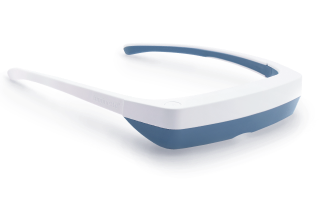
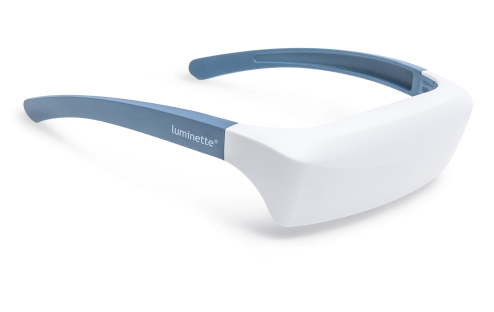
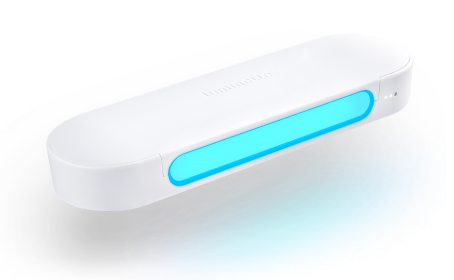
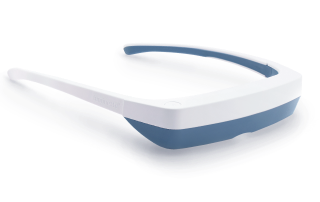
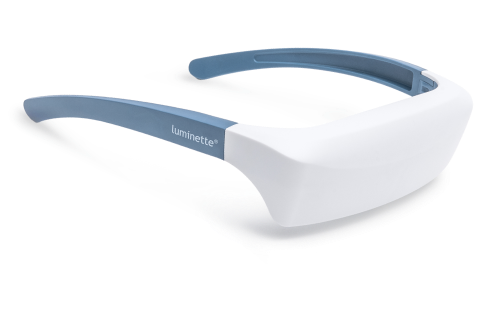
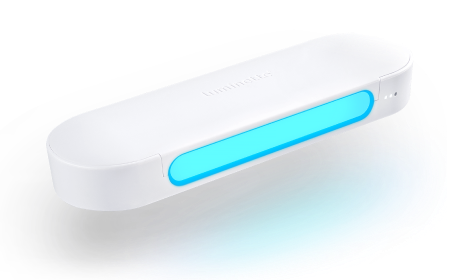
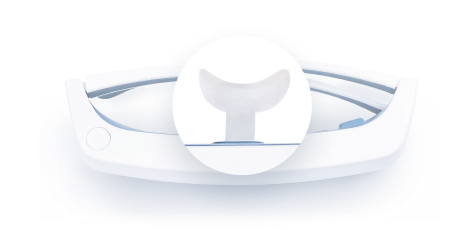
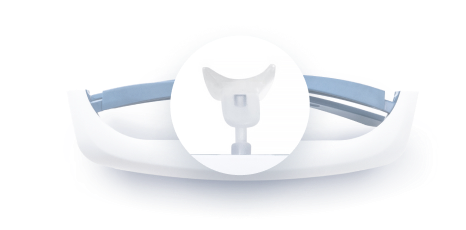
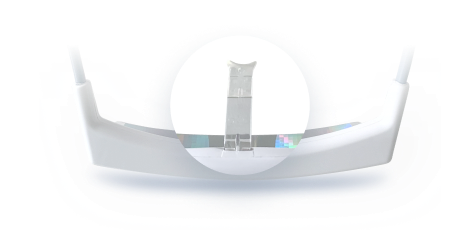
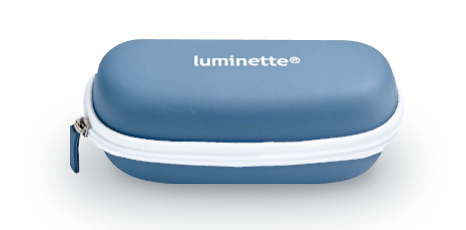
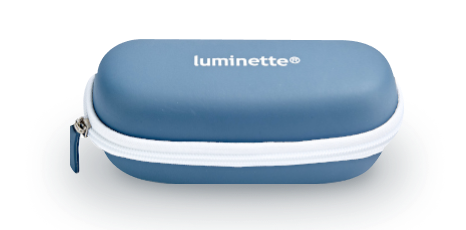
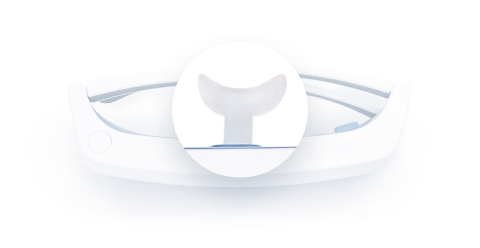
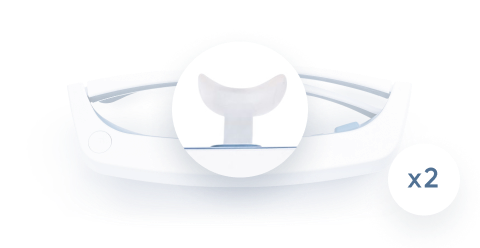
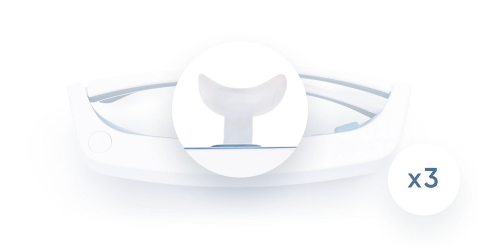
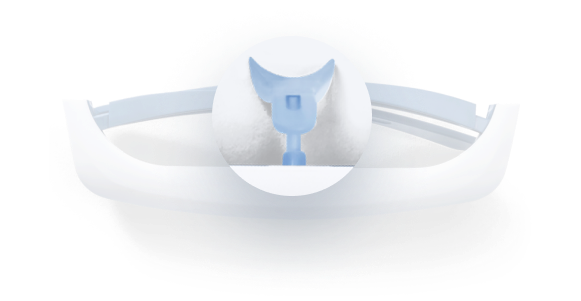
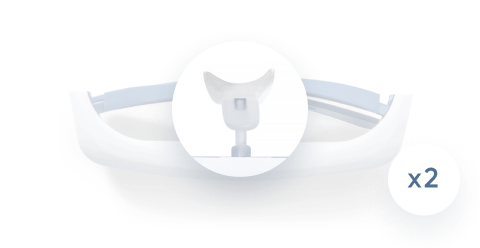
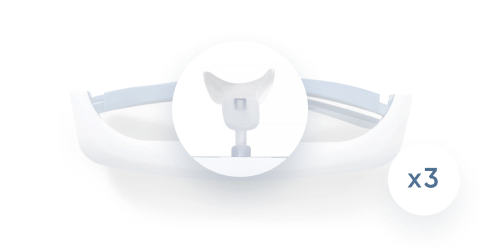
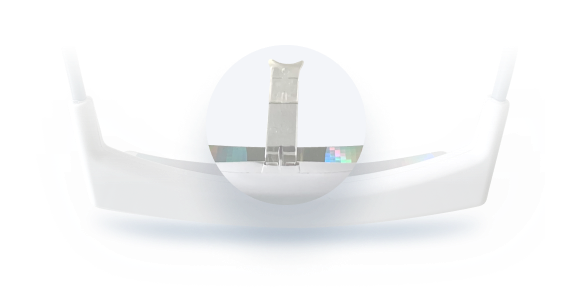
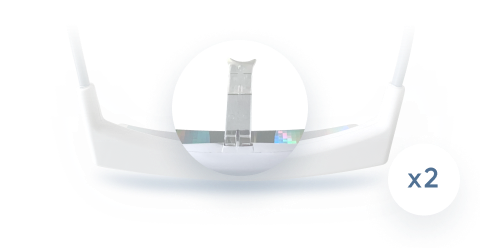
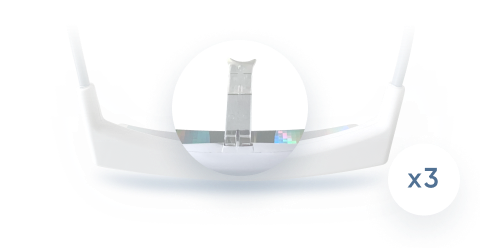
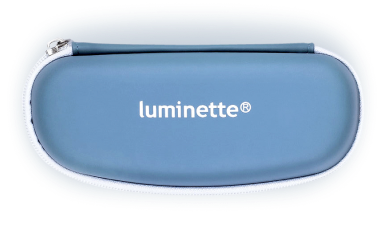
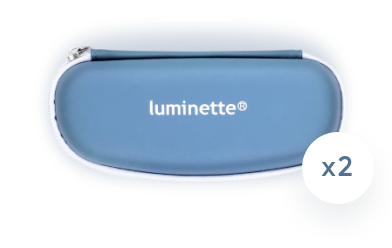
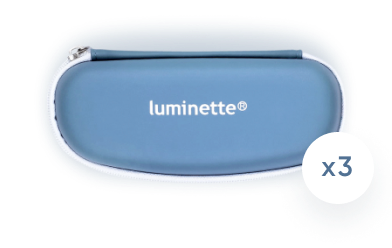
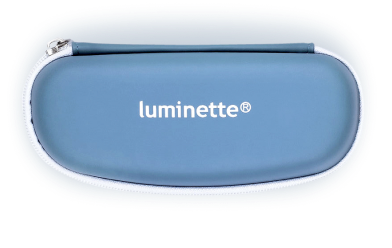
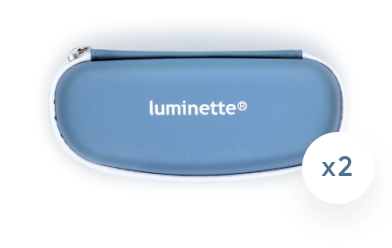
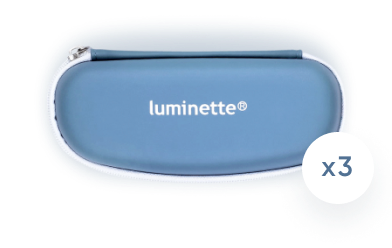
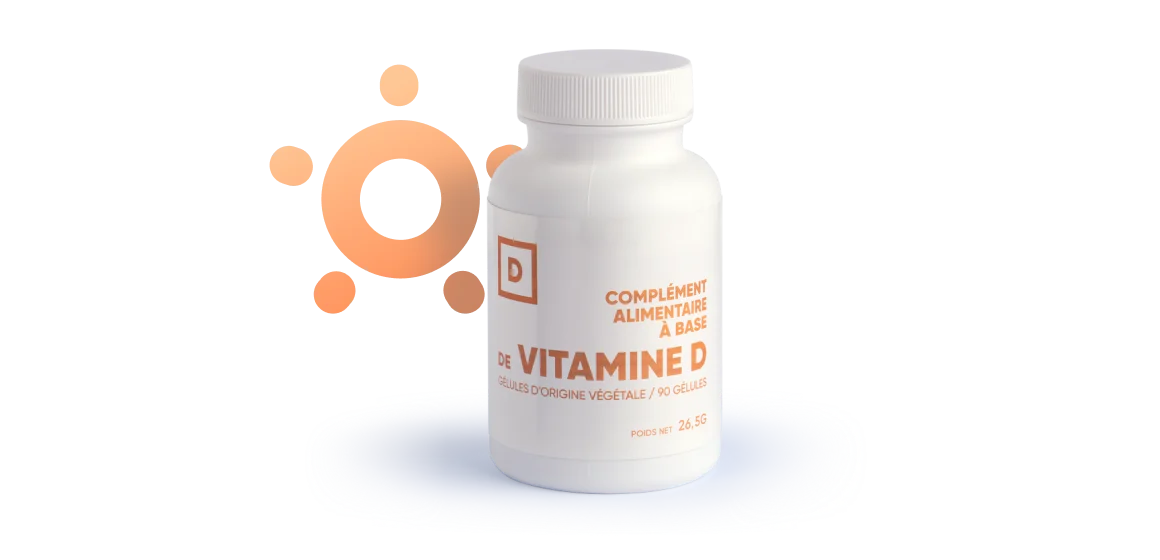



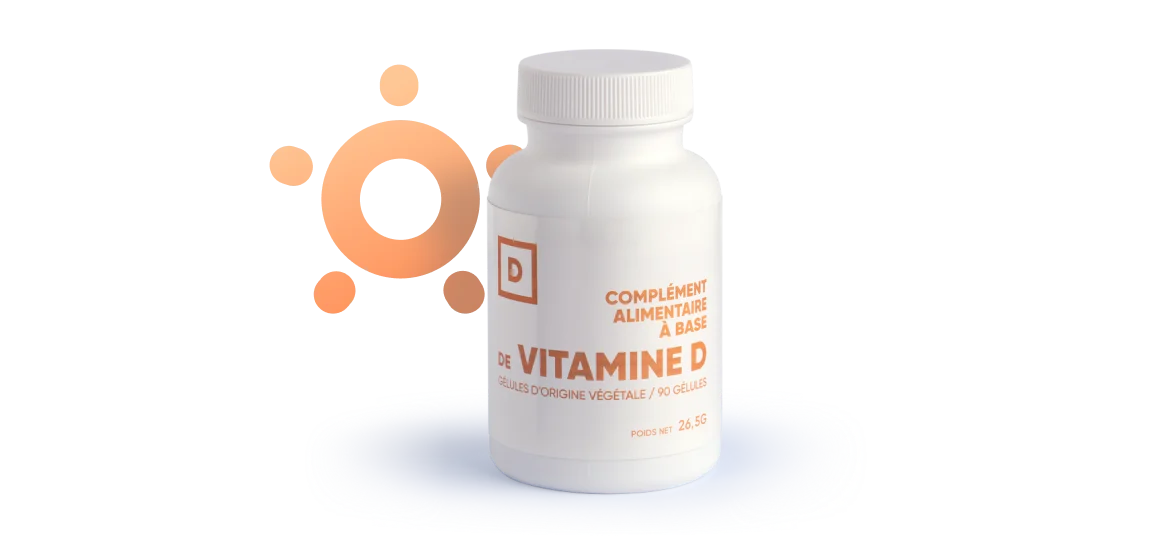
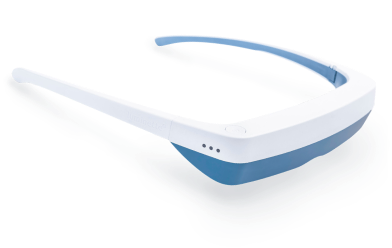
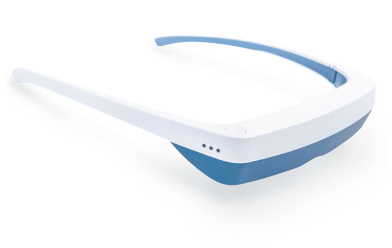
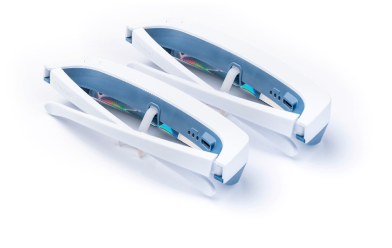
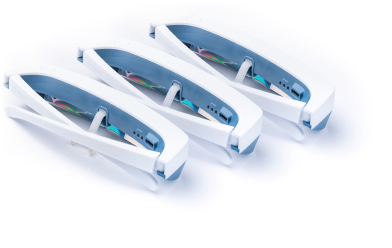

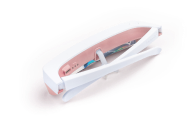
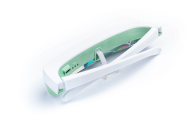
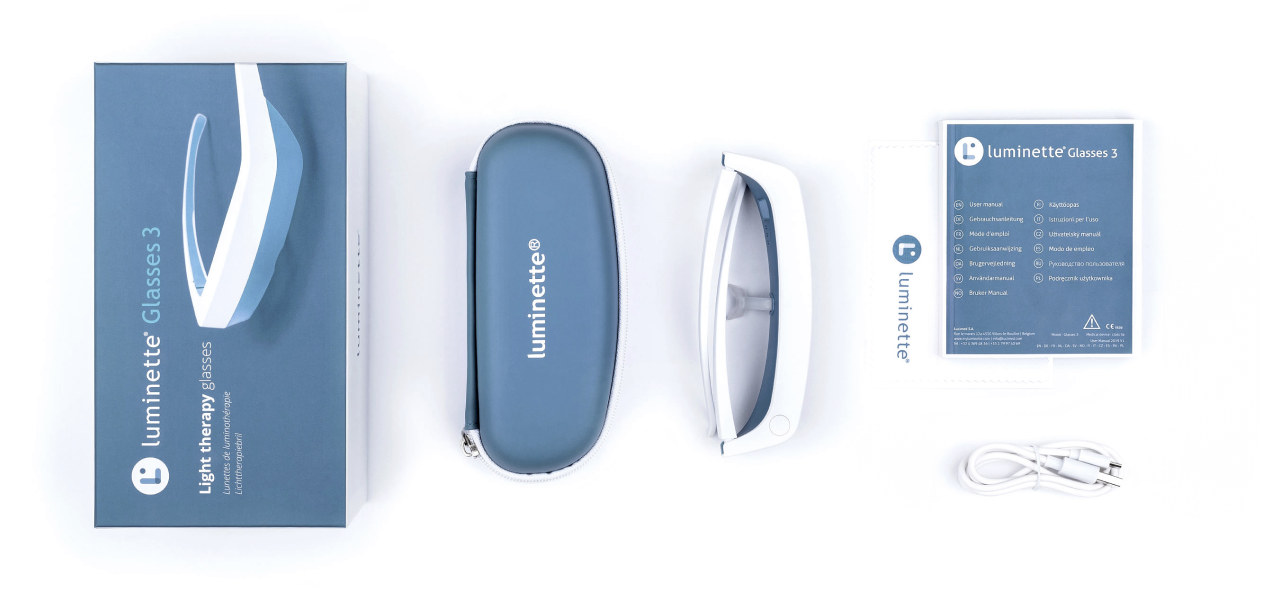
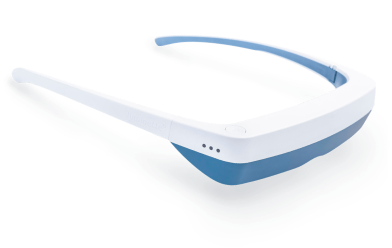
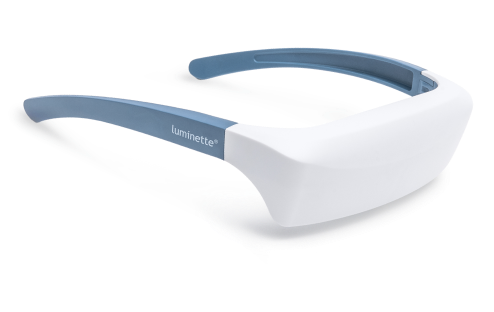
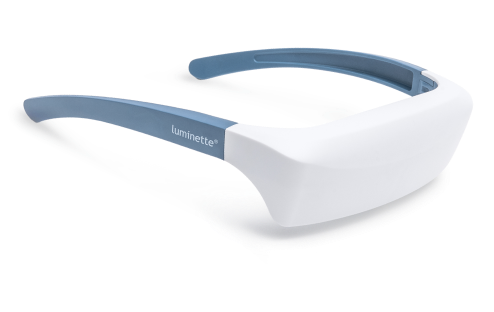
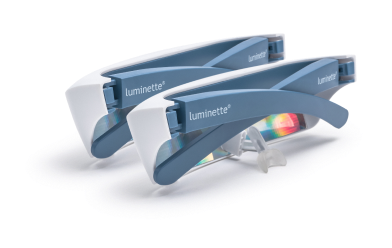
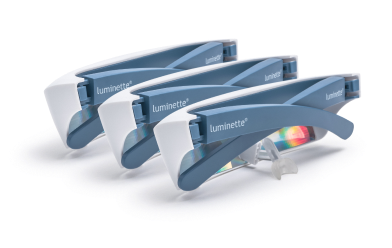
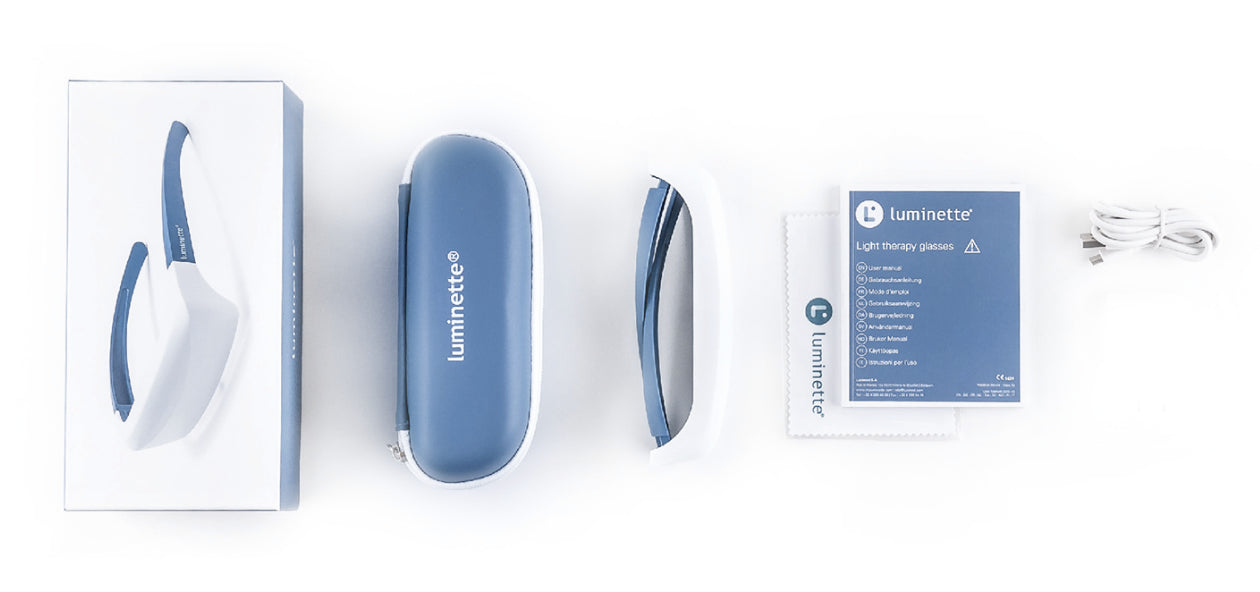
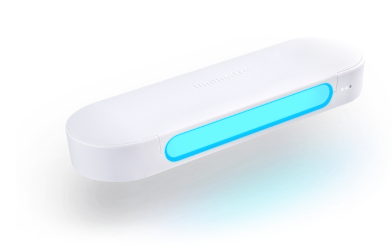
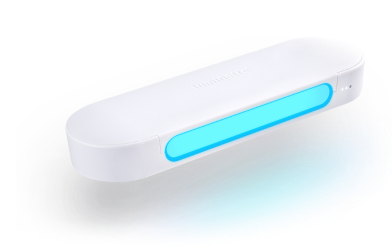
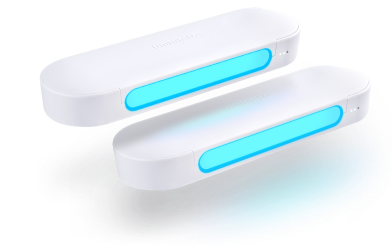
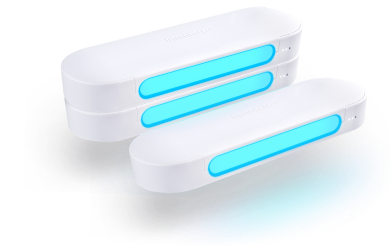
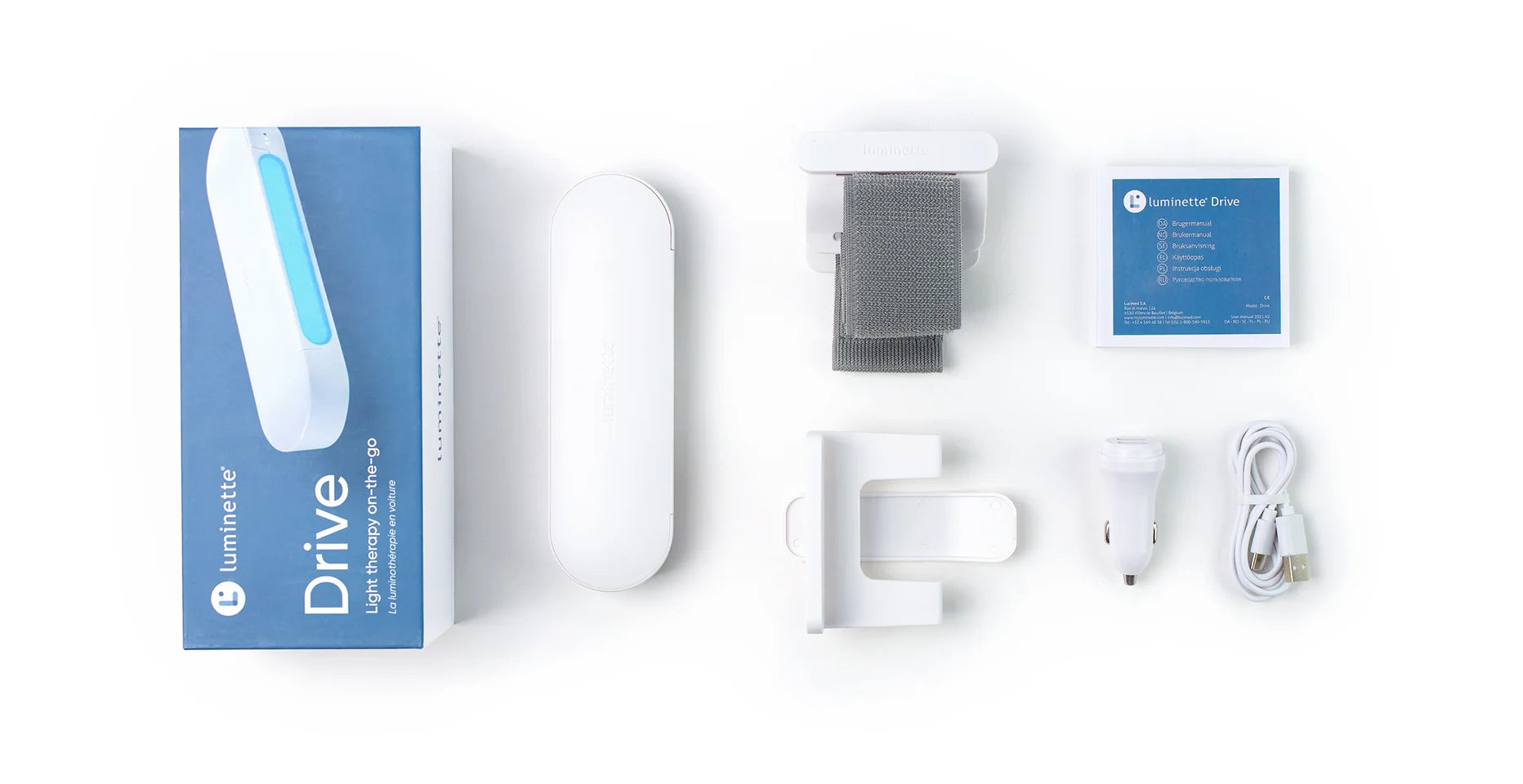
 Обратите внимание
Обратите внимание



